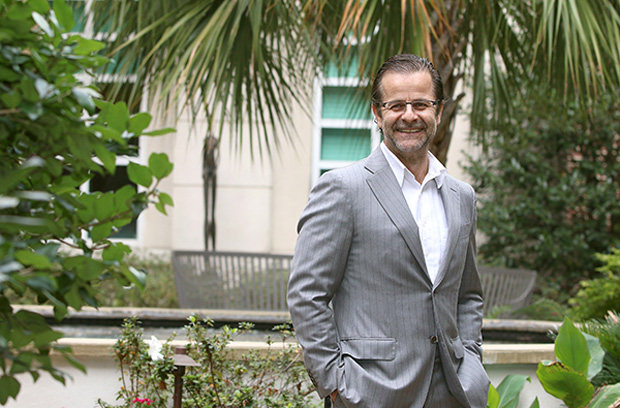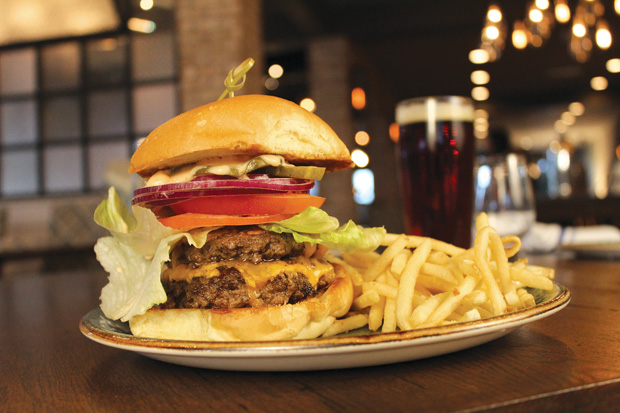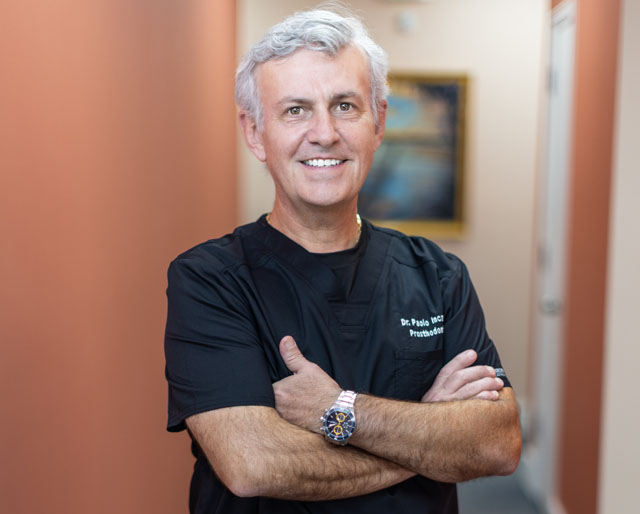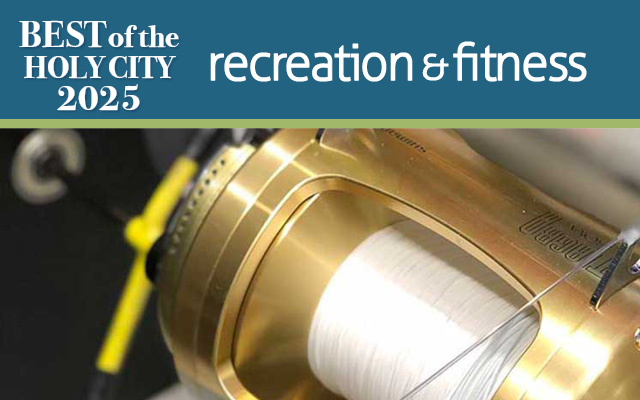Road Map to a Cure
08 Sep 2017
Hollings Cancer Center pursues ambitious goals and important questions
By SYBIL FIX

Dr. Gustavo Leone’s world at the MUSC Hollings Cancer Center is at once elegantly simple and marvelously complex.
His office, tucked in a corner of the building off Calhoun Street, is spartanly decorated, occupied mostly by a gorgeous sleek desk of hewn acacia, long and clear of clutter. Opposite though, and taking up one whole side of the office, is a black chalk wall displaying a maze-like diagram of the genetic wiring of a cell, a map of protein acronyms and numbers. These illustrate the greater complexity at the heart of Leone’s work and that of his colleagues at the HCC: How to stop cancer.
As director of this burgeoning cancer center, Leone leads a delicate combination of efforts, each of which is necessary to the overall mission of the center: effective patient care, recruiting top doctors, networking across cancer centers, and of course, fundraising.
But perhaps most important of all, Leone has an eye constantly focused on the questions that are critical to solving the riddle of cancer. How do cells communicate with each other? What is the switch that flips a cell’s life and causes it to flip ours? These are the questions that Leone, unabashedly courageous and ambitious, wants the HCC to pursue and answer through arduous and visionary research, researchers, and clinical trials.
“We have amazing scientists here now…doing cutting edge work. We are starting to build a movement to get to the next level,” says Leone, who came to MUSC in spring after extensive and important work in cancer genetics at Duke and Ohio State University. “But we have to have the vision and the fortitude to continue to invest in research to feed the information pipeline…and to develop a different standard. As opposed to following, we will be leading.”
Many Balls to Juggle
The Hollings Cancer Center treats, sees, or otherwise consults with roughly 4,500 patients a year, a number that is rising by about 20 percent annually, according to the HCC. Unfortunately, here as elsewhere, there is no cure for cancer, not yet.
Prevention of cancers mostly associated with lifestyle has helped cut the disease’s toll through vaccines and behavior modification. Prevention and the early detection of lung cancer, cervical cancer, and skin cancer, for example, have reduced mortality and increased survival rates.
And, in the past several years, treatments of at least some cancers have become much more successful. Advancements in targeted radiation therapy, most notably, immunotherapy and treatments targeting specific cell mutations, have made significant inroads in giving patients with certain kinds of cancer greater quality of life and longer lives.
“Immunotherapy is exploding and we are having incredible responses in patients,” says Leone. “That is pioneering work. But it’s important to not oversell things. Even the most amazing cures are not going to take care of 100 percent of patients.”
“There are many complex questions we are still not understanding,” Leone says, “both on how to boost the immune response in patients who are still unresponsive to immunotherapy and how to target the weaknesses in cancer cells.”
The greatest weapon in the HCC’s pocket is research and, straddling research and patient care, are clinical trials. At any given moment, in the HCC’s 125 labs powered by as many as 700 researchers, there are some 300 clinical trials taking place. Many of these are pioneering and initiated either entirely here or shared with others. They are ambitious—targeting, for example, the behavior of cells that cause bone marrow transplant rejections. But Leone wants the HCC to originate more indigenous clinical trials targeting the most difficult cancers. He also wants to take the fruits of the trials to hard-to-reach patients and areas, and to increase patient enrollment rates, now hovering sadly at 8 percent (about average everywhere, he said).
Leone, an elegant Uruguayan man with smart brown eyes and a soft Spanish lilt, is pragmatic. Clinical trials require researchers and doctors to design them, funding to fund them, and time to test them at multiple phases before approval. Most patients in clinical trials are not insurable, and only a small number of patients qualify.
“Who pays for that?” Leone asks.
That does not diminish his idealism and enthusiasm. Clinical trials and research—leading to a better understanding of how cancer cells function and communicate—are leading to more cross-disciplinary medicine and more personalized, precision cancer treatments, both of which the HCC takes pride in and of which Leone wants much more.
“We are going to reinvent precision science by doing the most difficult work right down to the bedside,” says Leone. “We can begin to design drugs so they are more specific, so they sit in the right pocket, not in another pocket.”
Of course, Leone strives for the HCC to continue to improve its quality and breadth of expertise. Patients at the center already avail themselves of doctors in multiple fields, all under one roof; if you have lung cancer, you see an oncologist, a pulmonologist, and an immunologist, among others.
“Few places can offer the ability to be studied and seen by a multitude of people with different expertise,” says Leone. As an institution, he continues, “you have to have the breadth of expertise to offer that and the interest to do that. So, the question is always, how do you continue to innovate? It takes extra effort and extra time.”
As a National Cancer Institute-designated cancer center—a recognition given to 69 centers in the country for their scientific leadership in cancer research—the HCC avails itself of the collaboration, studies, and expertise of leading cancer researchers and scientists across the country and the world. But this requires the maintenance of a brain trust, recruiting and keeping established medical talent across hard-to-conquer specialties—bladder cancer, myeloma, head and neck cancers—as well as building a continuous stable of brilliant young researchers who can train the next generation to follow in the same path. “We need to follow the trajectory of inventiveness,” says Leone.
Leone also strives to overcome regional and political differences and racial and economic disparities, to take HCC’s groundbreaking work out to the rest of the state and help control cancer rather than react to it.
Keeping the Eye On the Cell
While he entertains strategy and raises money to accomplish that, Leone keeps his mind on the greater questions that will solve the riddle of cancer. He points to the maze-like schematic on the chalk wall and smiles simply.
A genetics researcher who came to this work through a fascination with the relationship between viruses and cancer, Leone takes cancer’s modus operandi down to the simplest terms for the laywoman and man. He talks about cell barriers, how to penetrate them and knock them down. How to take out T-cells from a body, educate them, and put them back to do good work. How to master the behavior of molecules.
All of that goes to the heart of curing and preventing cancer. Some of the greatest questions remain unanswered: How hormones impact cancer, or lipids, or aging; why people of some ethnicities have more aggressive types of cancer.
“Cells exchange information in some way that we do not yet understand. They are always talking to each other. When that communication is disrupted, it creates havoc,” says Leone, his face showing intrigue and frustration.
He has done genetic work with some success in decoding some beginning of that communication. “We don’t have the answers but it’s the beginning of a road map. I can see it is going to be important in cancer.”
Leone takes a long view of his work, and, from that view, he has an optimistic perspective. He reminds us that, after all, only in the past decade or so have we sequenced a genome. With the right steadfastness and risk-taking, he predicts in 50 years cancer will no longer be a problem on the scale we have now.
“This war is going to be won with many ongoing battles. …We have to keep at it and continue to fund research,” says Leone. “Not all research leads to something, but you have to bank on the ideology that some of it will.”












